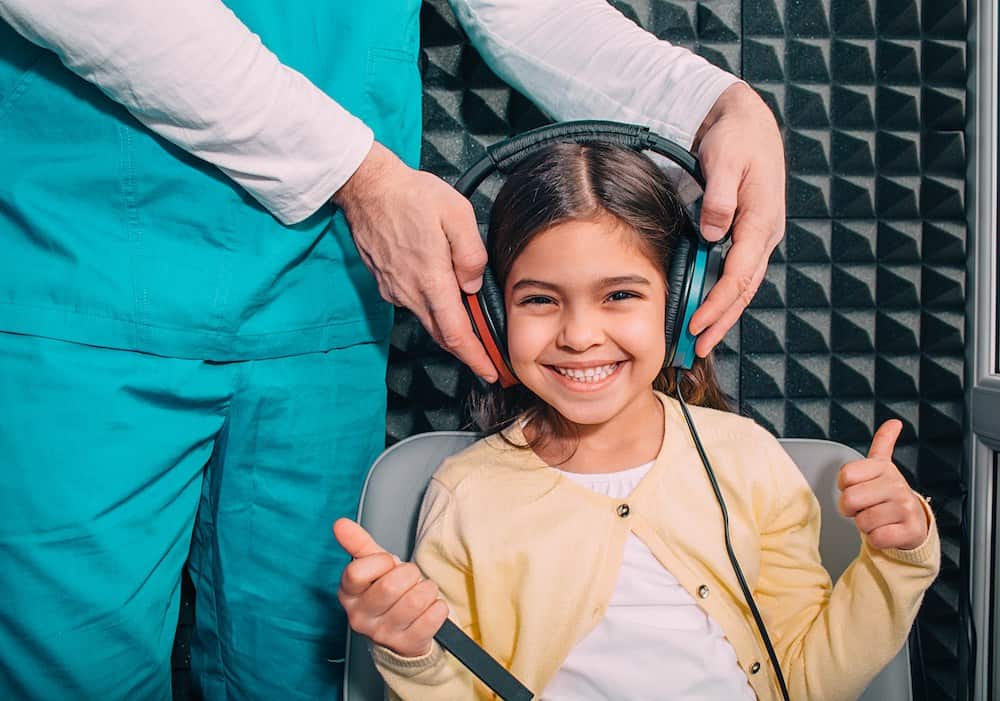How to Adjust Hearing Aids for Seasonal Allergies
Allergy season brings familiar symptoms like sneezing, watery eyes and

You’ve been prescribed hearing aids by your audiologist to improve the quality of sounds that you hear, and to make life easier and more comfortable. But now, just as you’ve started to adjust to your hearing aids, you’ve noticed a strange whistling noise coming from them, and it is driving you crazy.
The good news is that while annoying, the problem can be easily dealt with. You see, when you notice whistling coming from your hearing aids, the cause is usually due to feedback. Feedback happens when the sound that’s coming out of your hearing aid loops around and goes back into the hearing aid’s microphone.
While the feedback noise that’s related to whistling is annoying, there are lots of ways that you can eliminate it and prevent the issue from recurring.
When sound is leaking from your hearing aids and causing feedback, it’s important to take the time to understand the cause of the issue. Because, if you don’t determine what the cause is, you won’t be able to eliminate the problem and will continue to hear feedback.
So, what can cause feedback and whistling to occur when wearing hearing aids? There are a number of factors that can cause these kinds of issues, they include having poorly fitting hearing aids, having a buildup of wax in your ears, having the volume set too high, having broken tubing, or having a blocked microphone.
If your hearing aids are poorly fitting, this means that they don’t fit into your ear correctly, and this will cause the sound to leak out and then go back into the microphone, which can create the irritating whistling sound.
This problem is more common in hearing aid wearers who do not have custom ear molds made – if you do have custom ear molds and are struggling with feedback, it’s important to make your audiologist aware that the fit of your hearing aids may not be quite right.
Earwax is naturally produced by the body, but sometimes the wax can build up inside the ear instead of being naturally dispelled from the body. When you put hearing aids in on top of a wax build up, the sound that comes out of the amplifier is blocked and therefore returns to the microphone, which causes the whistle.
To have excess earwax removed, speak to your audiologist. Don’t attempt to remove the wax yourself as you could cause further damage to your ear or ear canal. If your hearing aid microphone is blocked it will make the hearing aid whistle. To fix the problem, carefully clean the microphone to remove any debris or earwax from it.
It’s important to note that some hearing aid designs seem to be more sensitive to feedback than others. If you notice hearing aid whistling is an ongoing problem, it’s a good idea to speak with your audiologist.
Another reason that your hearing aids might whistle is if the volume is set too high. While it can be tempting to set your hearing aid volume to high, if it’s too high it can cause the sounds to re-enter the hearing aids, causing feedback to occur.
To fix the issue, simply turn down your hearing aids and see if the problem goes away. If it does, then it was most likely linked to having your hearing aids set too loud.
If the tubing in your hearing aid is broken, this can also cause whistling to occur. Sometimes, the tube that connects to the ear mold can go hard and shrink, which then pulls on the ear mold, which means that the fit is off. To fix the issue, all you will need is a new hearing aid tube.
If you notice that feedback is an ongoing issue that leaves you feeling irritated or annoyed, you might want to consider opting for a digital hearing aid that includes a feedback cancellation feature.
Hearing aid systems with this feature are able to monitor the signal that is sent between the system and remove any sound that will be re-amplified, causing feedback. This kind of system means that your hearing aids will automatically adjust based on anticipated sounds, which should prevent whistling.
If you would like to try out digital hearing aids that will help to prevent whistling hearing aids and feedback-related issues, speak to your audiologist about the options that are available to you.
At Hear Here Audiology we have a team of highly skilled and dedicated specialists who have years of experience dealing with hearing aid care and management and are on hand to help make life as easy as possible for hearing aid wearers.
To learn more about how Hear Here Audiology can help, give us a call at 727-289-1212 today.

Allergy season brings familiar symptoms like sneezing, watery eyes and

Cold and flu season brings extra challenges when you wear hearing aids.

Imagine you’re living in a rural area, miles from the nearest